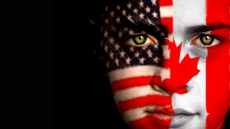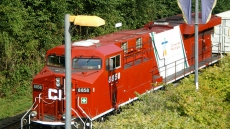OTTAWA - A left-leaning think-tank was targeted by the Canada Revenue Agency for a political-activities audit last fall partly because the research and education material on its website appears to be "biased" and "one-sided."
That partial rationale for launching the controversial audit appears on a newly released document that the think-tank, the Canadian Centre for Policy Alternatives, obtained under the Access to Information Act.
The one-page summary sheet, which has some material deleted to protect law enforcement, includes a section entitled "Screeners' comments" that outlines why the Ottawa-based group was selected to undergo an audit of its political activities.
The section refers to two previous audits, in 1989-1990 and 2002, where the tax agency says it first raised questions about the group's political activities, among other non-compliance issues.
"A review of the Organization's website, as well as the previous audit findings, suggests that the Organization may be carrying out prohibited partisan political activities, and that much of its research/educational materials may be biased/one-sided," says the document, a copy of which was provided to The Canadian Press.
The internal summary provides an unusual glimpse into the Canada Revenue Agency's audit-selection process, which the agency is normally bound to keep secret.
The Canadian Centre for Policy Alternatives is an avowedly left-leaning think-tank that first won charitable status in 1987, and has become a fixture on the federal scene, known in particular for its so-called Alternative Federal Budget each year. Its positions on social programs, taxes and the economy often conflict with Harper government policies.
The centre has become one of 52 charities to undergo audits of their political activities, in a new $13.4-million program launched in the 2012 federal budget.
Auditors are looking for any evidence of partisan activity, such as endorsements of political candidates, which is forbidden, as well as any violation of a rule that limits political activity to no more than 10 per cent of a charity's resources.
Initial targets were environmental groups, many of whom oppose the government's energy and pipeline policies. But the net was later widened to include international aid and social-justice groups, among others, many of whom have been vocal opponents of the Conservative government.
Some observers have said the new audit program has led to "advocacy chill," as charities fear speaking out lest they provoke auditors into de-registering them, potentially drying up donations. The time-consuming audits can also be costly, including legal expenses.
The Canada Revenue Agency, however, says it operates at arm's length from government and is simply holding charities accountable, ensuring they follow established rules.
A spokesman for the Canadian Centre for Policy Alternatives said the finding of bias is "absurd," since all think-tanks — whether on the left or right — work from a specific set of values.
"Under this definition, all think-tanks are biased or one-sided, and would not qualify for charitable status," said Bruce Campbell, executive director since 1994.
"The work of all think-tanks emanates from a set of values, progressive or conservative, that guide our research and policy analysis, and as such is biased."
Campbell added that CRA officials never raised concerns about partisanship or political activities after the 2002 audit.
"And we have not changed our practices since then," he said. "This creates the impression that CRA is redefining 'political activity'."
Campbell added that the CRA has not communicated any compliance issues in the current audit, which got underway last fall and continues.
The internal summary says the current audit is not only examining the CCPA's political activities but will "determine whether or not it continues to qualify as a charitable organization under the Advancement of Education," a specific charity type designated in the regulations.
A spokesman for the Canada Revenue Agency declined to comment on the audit, citing confidentiality provisions of the Income Tax Act.
But Noel Carisse said a Supreme Court of Canada case in 1999 laid down guidelines for determining when a charity is properly carrying out the advancement of education.
The high court "ruled that so long as useful information or training was provided in a structured manner and for a genuine educational purpose — that is to advance the knowledge or abilities of the recipients — and not solely to promote a particular point of view or political orientation it might properly be regarded as for the advancement of education," he said.
"It is for this reason that the CRA is required to assess whether purportedly educational material is reasonably unbiased and based on a well-reasoned position."
The Canada Revenue Agency does not release the identities of charities currently undergoing political-activity audits, including think-tanks, most of which are registered as charities in Canada.
Among right-leaning or pro-business think-tanks in Canada, two — the C.D. Howe Institute in Toronto and the Macdonald-Laurier Institute in Ottawa — have confirmed to The Canadian Press they are not currently under audit for political activities. Two others — the Fraser Institute in Vancouver and the Montreal Economic Institute — have declined to comment on the matter.
The Canadian Centre for Policy Alternatives reported $5.6 million in revenues in 2013, with about $40,000 spent on political activities, or less than one per cent of expenses.






